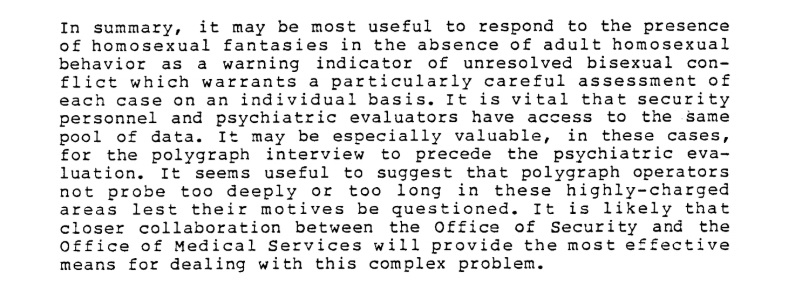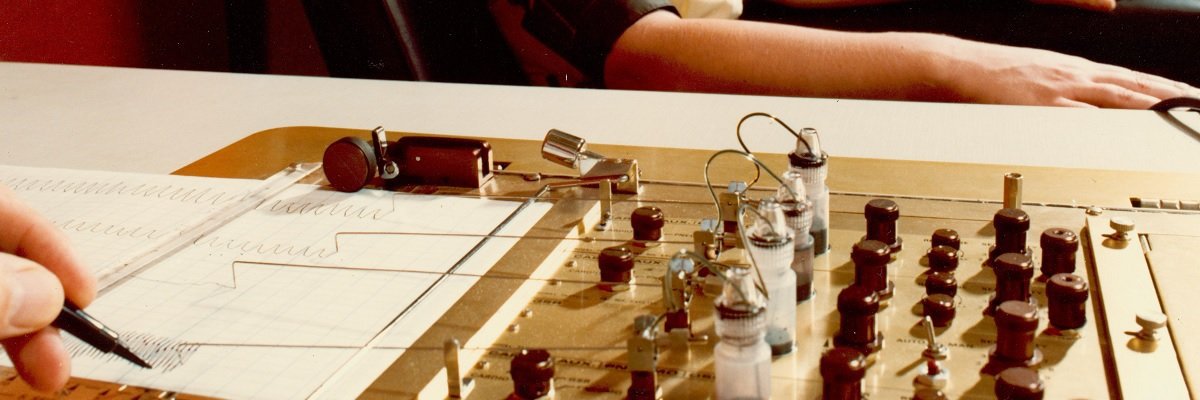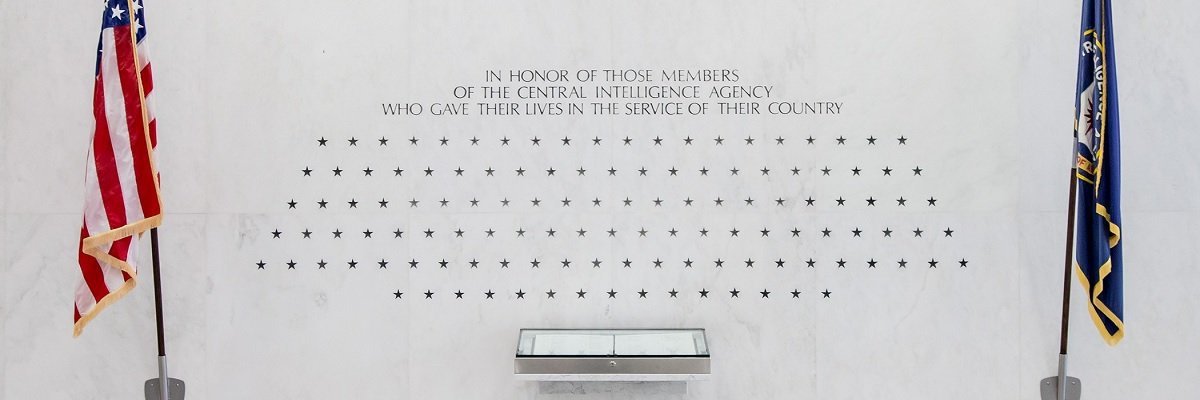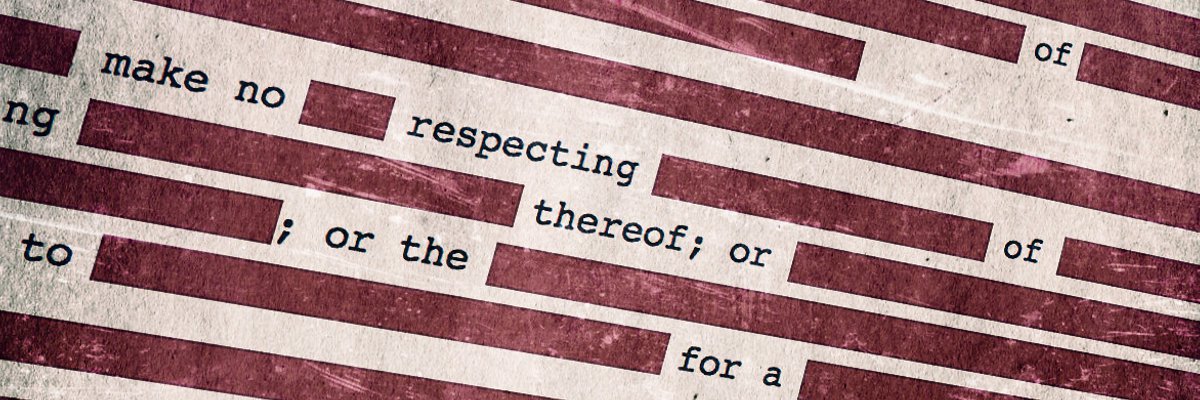In a 1995 executive order, President Bill Clinton declared that “No inference concerning standards [for government employment] may be raised solely on the basis of the sexual orientation of the employee.” Leading up to the decision, the Central Intelligence Agency and other agencies had a long history of discrimination against gay employees, viewing their homosexuality as a gateway to blackmail, extortion, and treason.
Their investigations into the private lives of their employees stemmed from the agency’s belief that being gay was so shameful, it was the perfect leverage for enemies to take advantage of.

According to the guide, the typical homosexual employee was often complex, intelligent, interesting, punctual, responsive to authority, cooperative, friendly, a credit to the organization, and an above-average worker. The gay employee’s “associations and activities,” however, made them ineligible for government work

Besides being more susceptible to blackmail, a House Intelligence Committee memo from 1982 reveals some other agency concerns regarding the hiring and retention of gay employees. As of 1982, homosexuality was illegal in domestic jurisdictions and foreign countries where employees often served. If you were gay, you were breaking the law, and were therefore untrustworthy.
According to a report from 1980, there were no personnel investigations as “complex, sensitive, or specialized” as the investigations of possible homosexuals within the agency. The investigations required an array of techniques that demanded the “utmost in tact, discretion and investigative ingenuity.” As a result, the use of polygraph tests in the interrogations of homosexual CIA employees was a favored method of extracting information. The process is referenced in a speech called “Security Implications of Polygraph-Derived Homsexual Fantasies” by an unknown speaker.

Harry Elmer Fitzwater was the Deputy Director of the CIA.

The speech essentially a long-winded rumination on homosexual fantasies. The speaker hypothesised that such feelings were indicators of, you guessed it, homosexual behavior. After a polygraph operator believed a subject was secretly a homosexual (or experienced gay “fantasies”) they would be referred to a psychiatrist better equipped to “assess the prognostic significance of the homosexual fantasy material.”

The full report is embedded below.
Image via Wikimedia Commons




